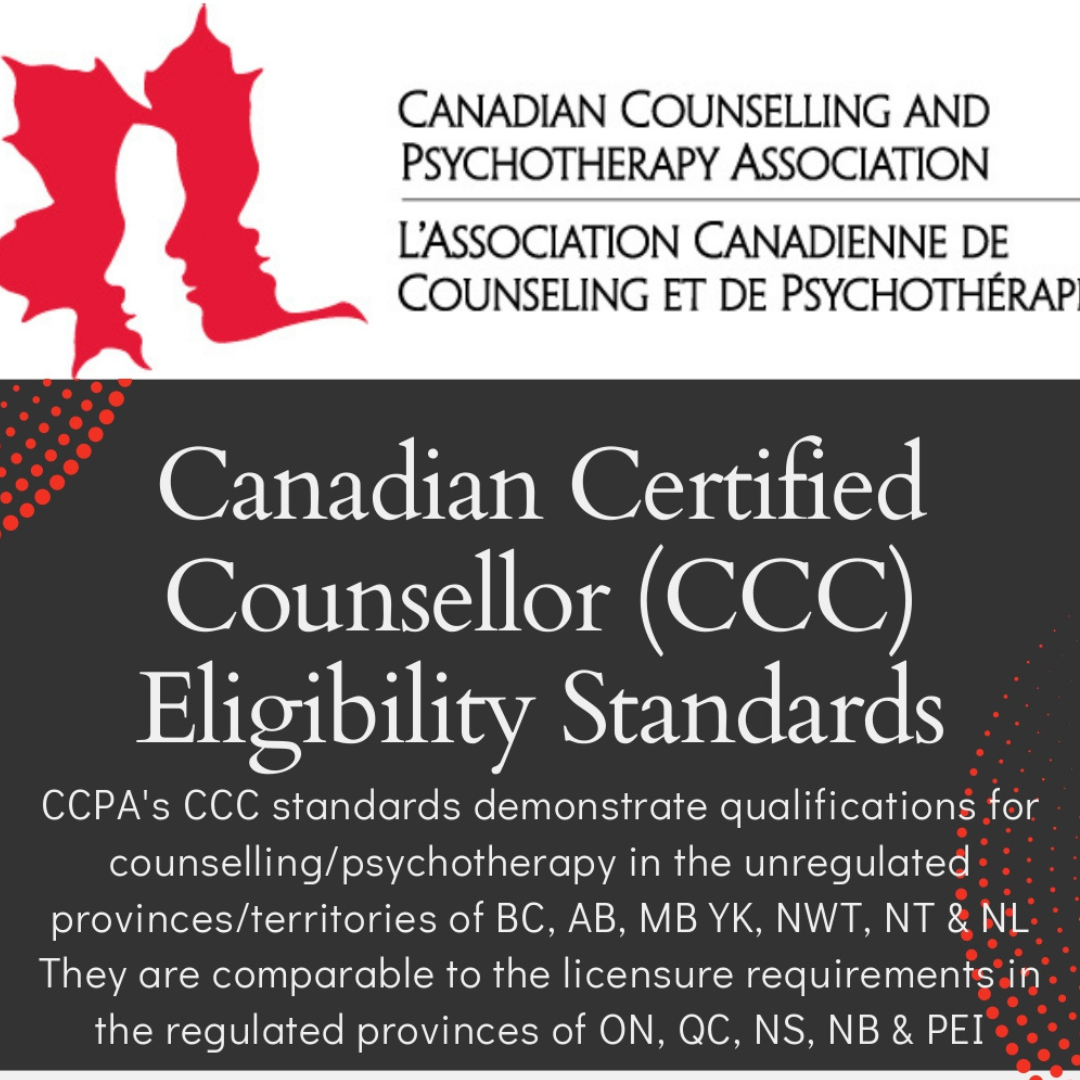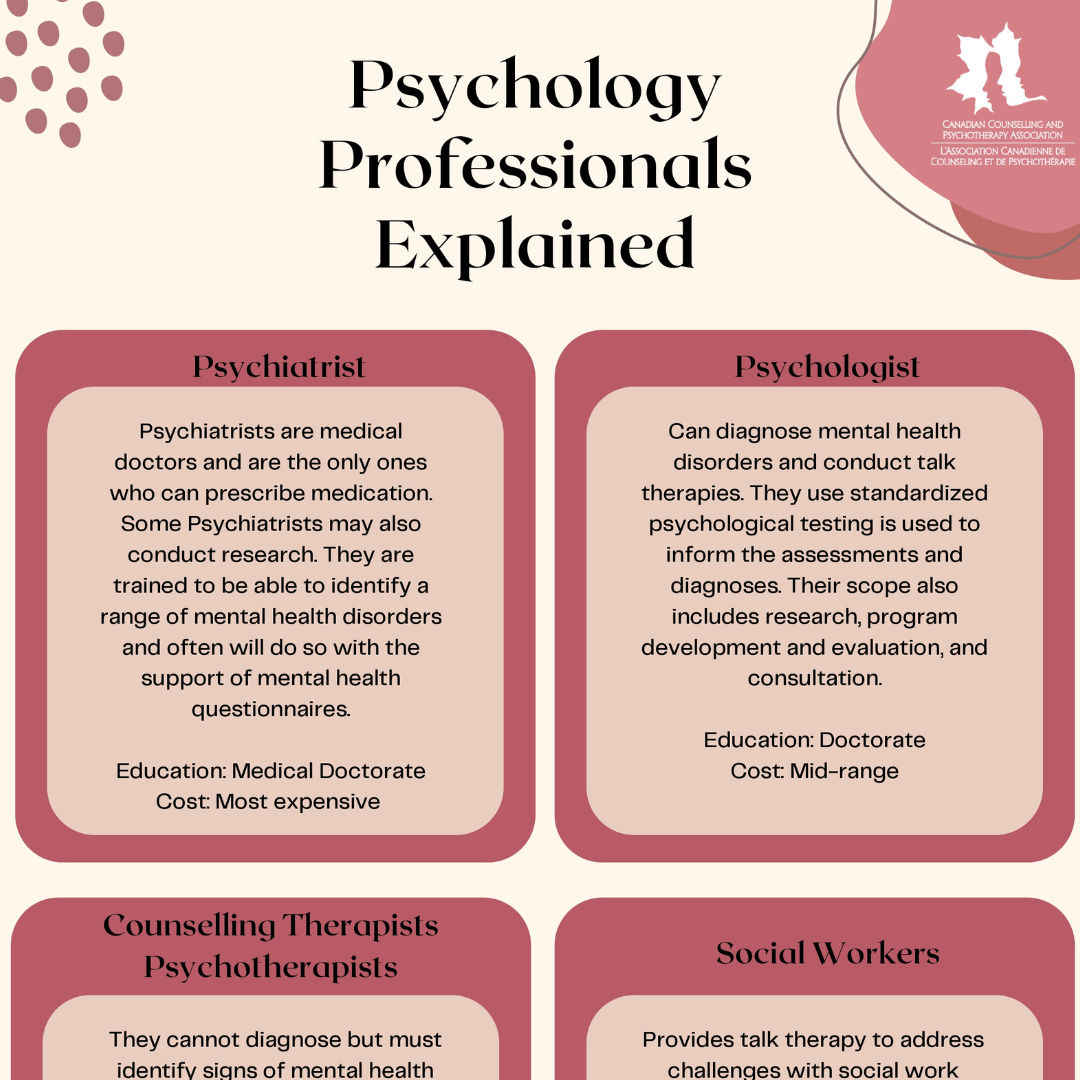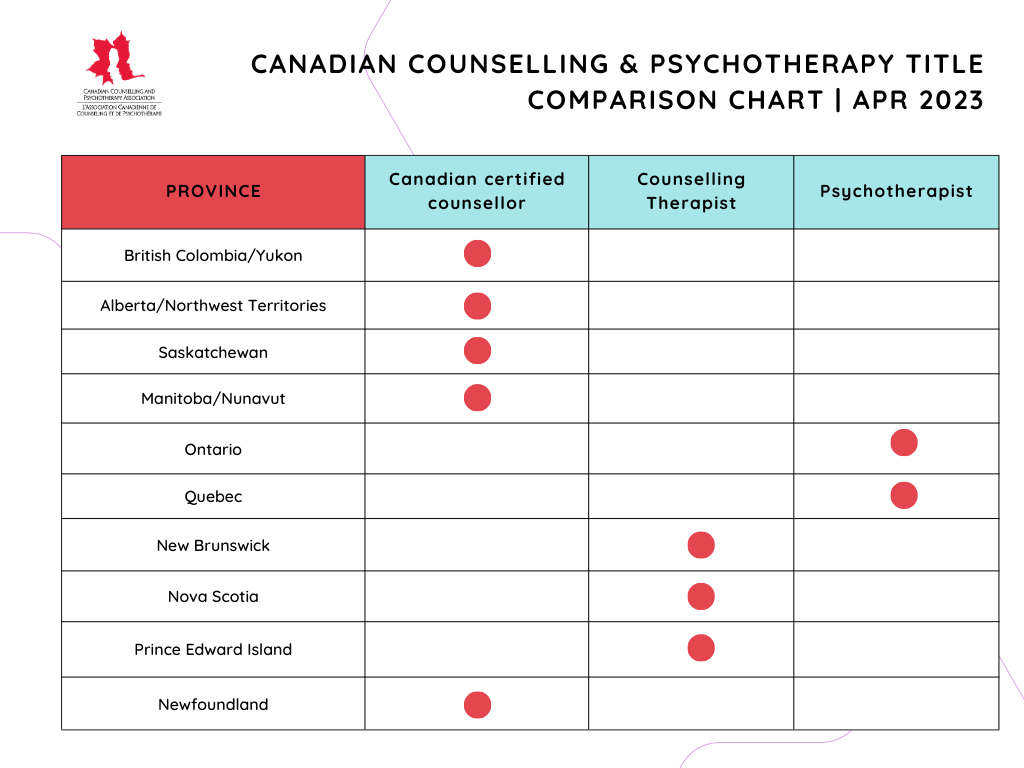British Colombia, Alberta, Saskatchewan, Manitoba, Yukon, Northwest Territories, Newfoundland and Labrador, and Nunavut still need to regulate the profession of counselling and psychotherapy. This means that there is no regulatory body in these provinces overseeing the practice of counselling and psychotherapy, and therefore a lack of protection to the public. British Colombia has a provincial association, The British Colombia Association of Clinical Counsellors, which provides a similar voluntary certification to that of the CCPA; the Registered Clinical Counsellor
What does this mean for plan sponsors and Insurance providers?
In these provinces (except for BC), there is no standardized group of providers who: have been vetted through a third party, require Standards of Practice and a Code of Ethics, and meet educational and ongoing professional development criteria. This is where CCPA’s Canadian Certified Counsellor comes in.
When it comes to including professional mental health titles under insurance plans, only psychologists and social workers are expected to be covered. By limiting the type of mental health service provider employees can access, plan sponsors are significantly reducing access to care, often unintentionally, due to a lack of understanding of the counselling field in Canada.
Since 1986, the CCPA has offered the Canadian Certified Counsellor (CCC). This nationally recognized voluntary professional title parallels the requirements for regulating the professional designations of Registered Psychotherapists in Ontario, Quebec, and Registered/Licensed Counselling Therapists in New Brunswick, Prince Edward Island and Nova Scotia.
Our Recommendations:
Inclusion of Canadian Certified Counsellors (CCC) in benefits coverage for unregulated provinces
By including CCCs in paramedical mental health coverage, insurers and plan sponsors create more opportunities and access for employees to feel a sense of autonomy over the mental health support received, allowing employees to pick a provider that best meets their needs. This, in turn, will help the employee to feel more satisfied with the benefits offered and more supported in their workplace.
To learn more about our CCC designation visit our certification page here.
Interested in learning about the advantages of including CCCs in insurance plans?
Inclusion of regulated counselling and psychotherapy titles in regulated provinces
The profession is regulated under the title of Registered Psychotherapist in Ontario, Quebec, and Registered or Licensed Counselling Therapist in New Brunswick, Prince Edward Island and Nova Scotia. These titles have been around for years, yet unfortunately, the inclusion of them is often missed by plan sponsors and insurance providers – even in the regulated province.
Frequently plans include access exclusively to a Psychologist or Social Worker. This is a good start, but it limits employees’ access to thousands of additional qualified mental health professionals across Canada, including Registered Psychotherapists, Registered Counselling Therapists and Licensed Counselling Therapists.
When plans include the appropriate regulated title based on the employee’s province, plan sponsors and insurers are helping to address the ongoing national issue of extensive wait times for mental health service access.
Interested in learning more about the advantages of including regulated mental health professionals in insurance plans?
Click here to book a meeting with Lindsey Thomson, CCPA’s Director of Public Affairs.


